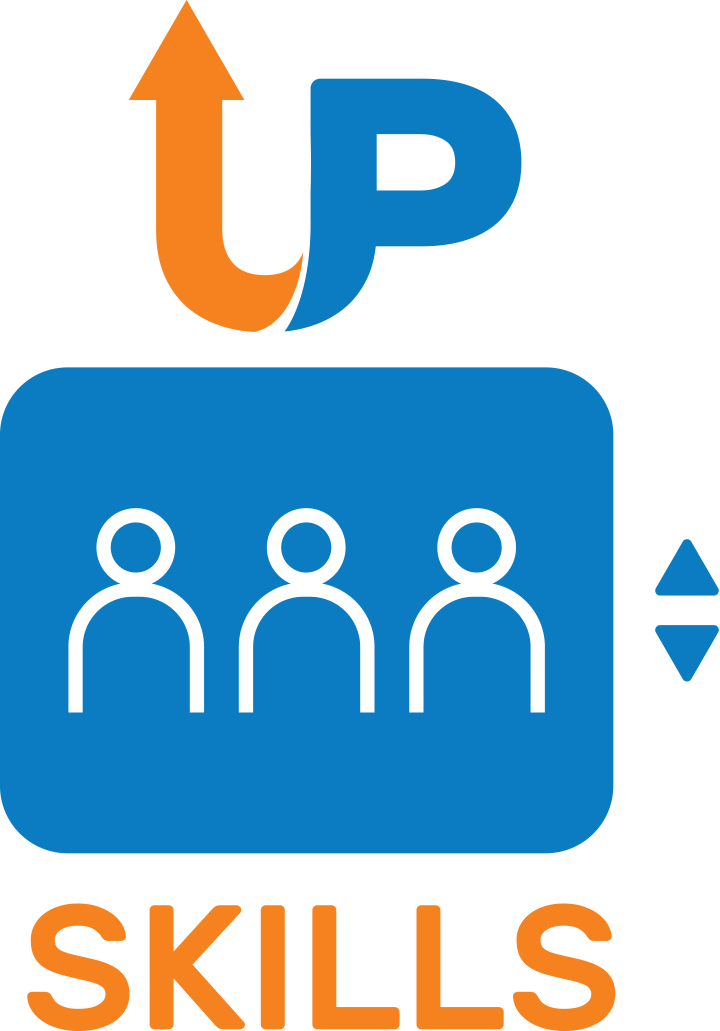Learning Content
Student project showcases
As part of our third task for this intellectual output, we created short assessable research projects to compliment the blocks of the UPSKILLS learning content. These projects, the creation of which followed a set of dedicated guidelines that we compiled specifically for this task, are embedded in the relevant UPSKILLS Moodle blocks.
During the piloting phase, students from a number of partner institutions had the opportunity to take part in such projects and have shared their experience with us in the form of blog posts, which we showcase below.
Extra! Showcases from the UPSKILLS summer school (July 2023)
During the last day of our summer school in Petnica, the students who participated in it showcased their work, outlining their individual or group project’s aim and how it was achieved, by choosing between a presentation or a poster format. Below you can find these additional showcases, following a brief description of each one of the relevant projects.
Collecting language data from human participants
For this project, students chose a topic from the areas of morphophonology/morphosyntax, second language acquisition and sociolinguistics, selected a suitable method (e.g. elicited production) and designed a small-scale study, by formulating a research question, specifying conditions, preparing stimuli and planning data analysis.
-
- Judgement task nonce words: “Wobbly” /a/ in BCMS – Ivo Mihov (UM) & Yoon Shin (UniGe)
- Self-paced reading experiment on topicalization – Elston Mamo (UM), Julie Gindre (UniGe) & Elton Pistolia (UniBo)
- L1 transfer in the acquisition of articles in L2 English by Italian and Serbian native speakers – Saverio Collarini (UniBo) & Laura Marin Tamayo (UniGe)
- Infinitive vs da+present structure in BCMS phasal verb complex predicate – Jelena Božić (UB) & Marija Lazarević (UB)
- The sociolinguistic interview – Martina Oliva (UM), Isotta Chiodi (UniBo) & Alexandra Dunčková (UniBo), including:
- Attitudes towards English as a global language
- Attitudes towards the label “Serbo-Croatian”
- Experiences of interaction between Serbians & Croatians
You can also download the whole group’s presentation masterfile here.
Language Variation: Investigating double object constructions
This project focused on theory, particularly on the problem represented by double object constructions which are possible in typologically unrelated languages. Besides learning the key theoretical concepts, by the end of the summer school, students also acquired some basic notions of text processing and statistics.
-
- Double object construction in Polish and Serbian – Julia Bojar (UM) & Andjela Kuzmanović (UB)
- Case order in Croatian double object constructions – Milena Korenika (UniRi) & Tihana Tadej (UniRi)
- Double object construction in select Germanic languages – Alex Rashed (UM) & Nikolaus Tlapak (UniGraz)
- Double object constructions in Italian: Analyzing verb types and argument order – Alice Fedotova (UniBo) & Martina Biagioni (UniBo)
Computer programming for language students
For this project, students used the programming concepts learned in class to make a hangman game, developing skills connected to reading text files, input/output, loops and conditions, as well as text searching and manipulation.
-
- Computer programming for language students – Alexandre Mazuir (UniGe), Georgina Clarkson (UM), Luca Giordano (UniBo), Lucia Neuhold (UniGraz), Nikola Pušičić (UB) and Victor Chamot (UniGe)
You can also download the group’s code here.
Text processing: Building, sharing and archiving corpora
For this project, students described the similarities and differences in meaning and evaluation conveyed by a set of near synonyms in languages of their choice, by designing, compiling and analysing dedicated corpora.
-
-
Speaking of consequences in Chinese, Croatian, English, French, and Greek: A corpus-based study – Lena Higginson (UniGe), Mehanaz Kabir (UniGraz), Xinyi Li (UniBo), Mariana Manousopoulou (UniGraz), Laura Škalamera (UniRi) & Monika Zeba (UniRi).
-
